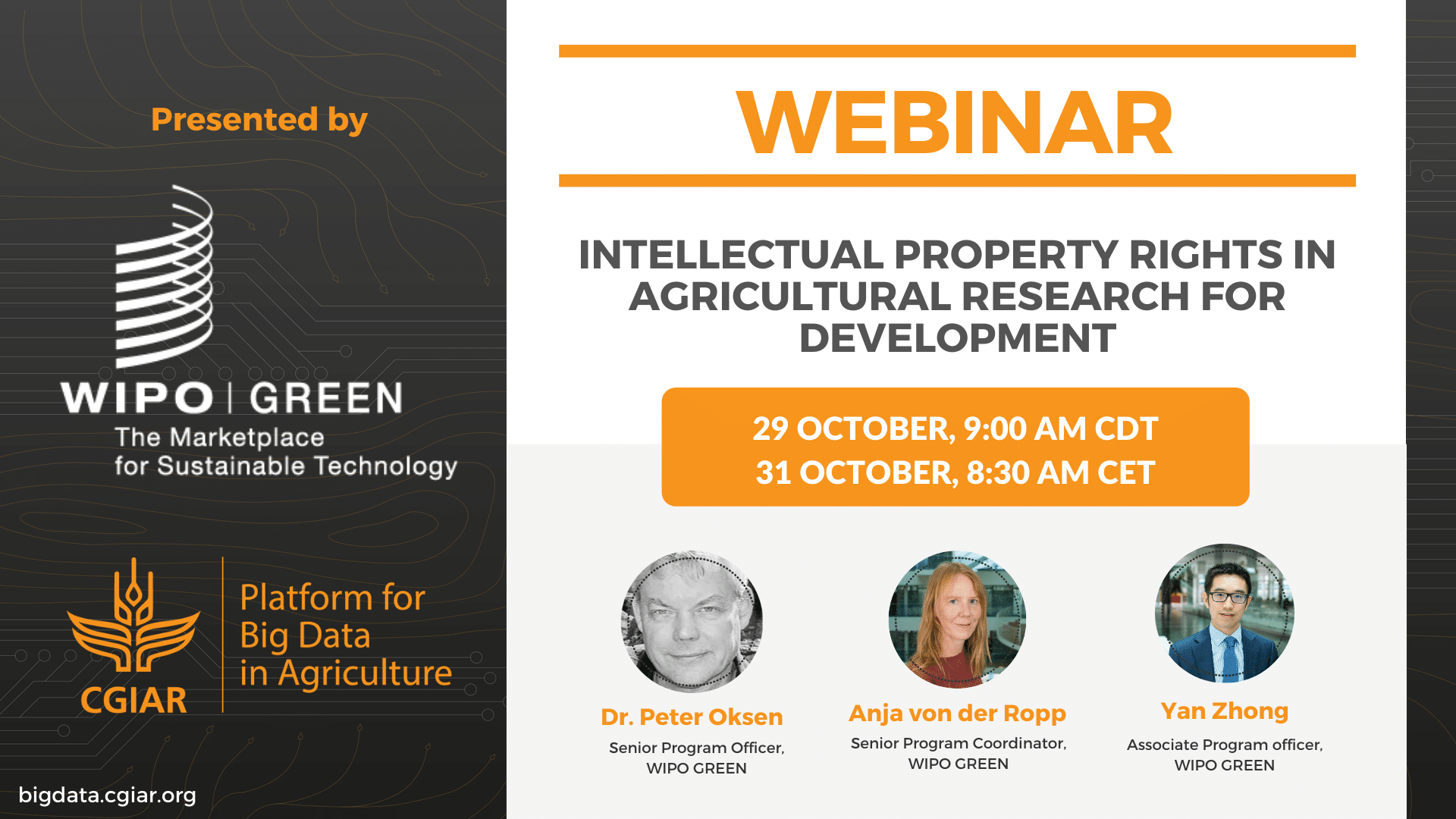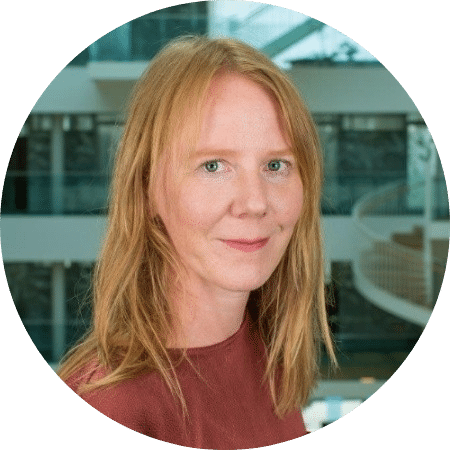Event
[WEBINAR] Intellectual Property Rights in Agricultural Research for Development
By CGIAR Platform for Big Data in Agriculture and WIPO Green
October 29, 2019
9:00 AM CDT
– October 31, 2019
10:00 AM CET
Online
October 29, 2019 9:00 AM CDT
October 31, 2019 10:00 AM CET
Online
8 - 8Shares

Title: Intellectual Property Rights in Agricultural Research for Development
Dates and times:
- 29 October 2019 at 9:00 AM – 10:30 AM CDT (Western hemisphere)
- 31 October 2019 at 8:30 AM – 10:00 AM CET (Eastern hemisphere)
About
Technological innovation is developing quickly, in some areas even exponentially. The food security and agricultural sectors are no exception; important advances have been made in areas such as advanced mechanics, bio-technology, sophisticated nature-based systems approaches, and others.
It is increasingly recognized that global challenges such a food security and climate change cannot be met without significant advances in innovation and technology. All innovation has a source, and recognizing and protecting the rights of the innovator is at the core of the intellectual property right (IPR) systems. The IPR system was created to stimulate innovation based on a balanced approach. It provides a time-bound control over the use of an innovation, whether the intention is for commercial use or free public access.
The webinar will introduce the IPR system in the context of agricultural research for development. It will explain patents and other relevant IPR instruments, their merits and limitations, and illustrate how the IPR system can serve agricultural research in the context of CGIAR.
The webinar is organized by WIPO GREEN in cooperation with CGIAR Platform for Big Data. WIPO GREEN is part of the Global Challenges Division at the World Intellectual Property Organization (WIPO), a UN specialized agency based in Geneva. WIPO GREEN addresses the global challenges of climate change, food security, and the environment by mobilizing innovation and technology as solutions in relation to these challenges.
Agenda
- IPR in the context of agricultural research for development
- The IP system: patents and other instruments
- WIPO and WIPO GREEN
- Technology transfer and how to approach IPR for agricultural research
Presenters
Dr. Peter Oksen
Senior Program Officer at WIPO GREEN
Dr. Peter Osken has more than 20 years of experience in socio-economic development and natural resources management and holds a M.Sc. in Geography and a PhD in Development studies. He was associate professor in development studies at Roskilde University in Denmark for more than a decade before moving to Lao PDR and working as managing director of a Lao-Australian consulting company. He headed the Danida Environmental Support Programme in Indonesia for three years and began working for WIPO GREEN in late 2018.
Anja von der Ropp
Senior Program Coordinator at WIPO GREEN
Anja von der Ropp has experience in intellectual property and innovation in relation to global public policy issues such as climate change, food security and public health. Prior to joining WIPO in 2005, she worked as a journalist in Berlin covering matters related to European health law and policy and as a researcher and lecturer at the University of Bremen specializing in European Private Law and Intellectual Property Law. She holds a Master’s Degree in European Legal Studies from the College of Europe.
Yan Zhong
Associate Program officer at WIPO GREEN
Yan Zhong supports the WIPO GREEN Consortium, including partnership, database maintenance and technology evaluation. Before starting his career in WIPO, he worked for ten years in China National Intellectual Property Administration (CNIPA) as a patent examiner and project administrator in bilateral and multilateral IP cooperation. He is educated at the College of Pharmacy of Dalian Medical University, the Commercial and Economic Law School of China, University of Political Science and Law, and holds a lawyer qualification certificate in China.
Access information
Click here to join the webinar.
Please mute your microphone when you are not speaking in order to minimize background noise.






